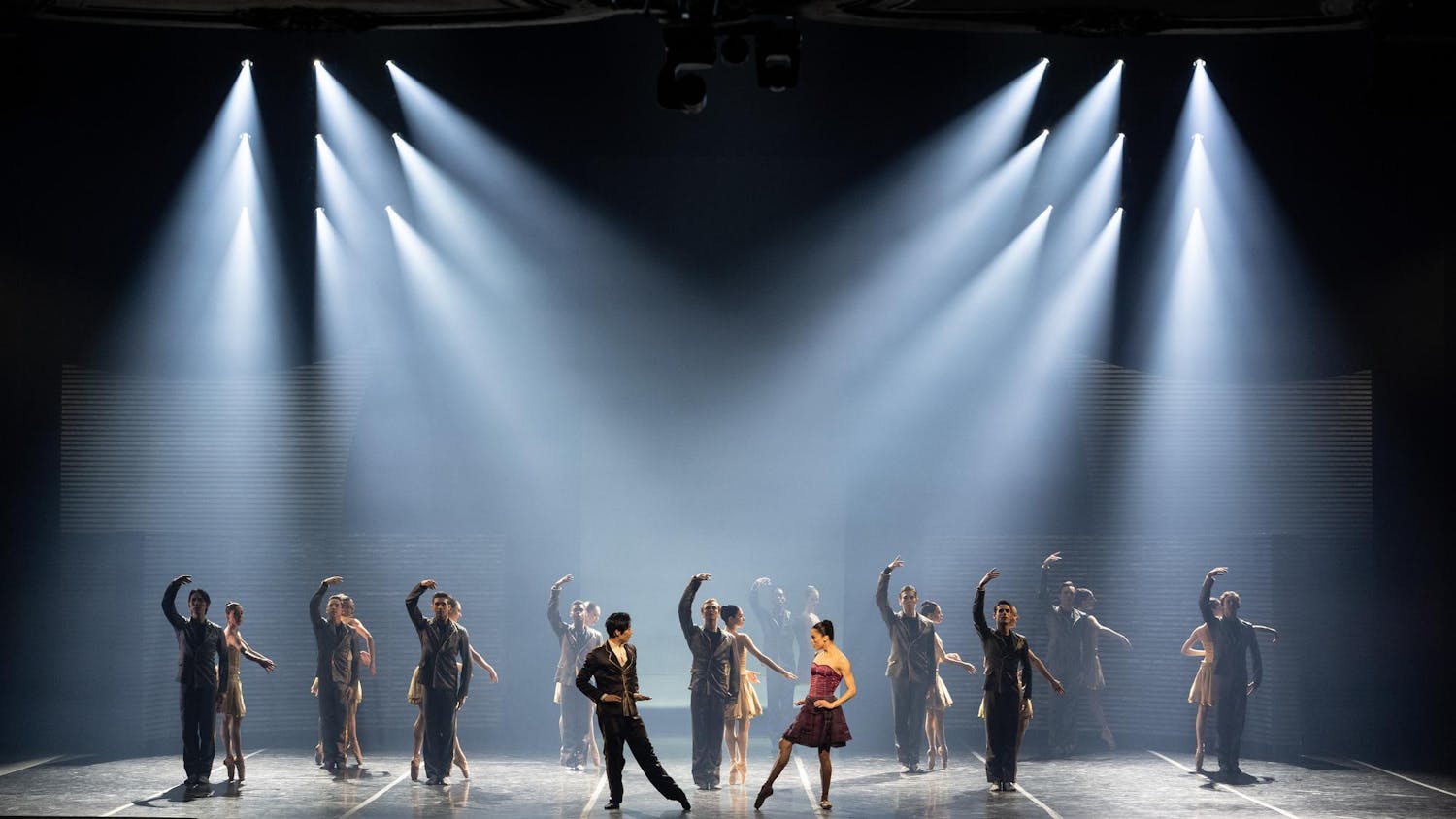Ridiculous. That was the one word going through my head both during and after the Lyric Stage Company of Boston's play "Or." This production was so utterly ridiculous that I'm itching to convey how disappointing it was.
"Or," written by Yale School of Drama alumnus Liz Duffy Adams and directed by Daniel Gidron, builds on the mysterious life of AphraBehn (Stacy Fischer), alleged spy and one of the first female playwrights in 1660s Britain. Having just returned from espionage work for the king, Behn plans to start a career as a playwright. First, however, she must find a patron and escape debtor's prison.
When King Charles II (Ro'ee Levi) steps up as her patron — and lover, Behn's life becomes chaotic as she attempts to juggle secret relationships, finish her first play and escape her haunting life as a spy. "Or's" plot points — which fail to balance with excessive, hefty dialogue — culminate in a peaceful morning scene as Behn finally manages to finish her play … and begins a threesome with her patron and her play's leading actress, Nell Gwynn (Hanna Husband).
Adams focuses on the changing possibilities for women during the enlightened reign of Charles II. This translates less as a triumph over prejudice than an awakening to sexuality.
In fact, the majority of the plot, script and theme revolve around sex and sexuality. While this makes sense, as Adams also attempts to highlight parallels between the 1660s and the 1960s, the topic is approached with all the grace and subtlety of a crash of angry rhinoceroses. Sex is either a motivator or a tool used by each of the four main characters. Behn's use of sex to further her career is hardly a shining moment in a story meant to highlight feminism.
In that vein, the lackluster plot centers more on relationship management than historical comedy. The play's seduction and espionage are loosely pulled together by a string of events that, while chaotic, did not provide a substantial conflict for the heroine to overcome.
Of course, Behn may have been too busy trying to overcome the shallow acting to even notice her character's struggles. Stereotyped British personalities — and accents — highlight the play's palpable lack of depth. The performances feature little nuance, and the emotional levels remain stagnant for the majority of the play.
To be fair, that fault may lie more with "Or's" script than its actors. An overwhelming amount of dialogue dominates the play, and movements or physical representation of emotion act as space fillers instead of serving a purpose. The conversations also seem more like filler than plot drivers and developers.
On the subject of character development, Behn and her lovers are given, even in this melodramatic plotline, opportunities to grow. Adams explores none of them in her script. Each character leaves the way he or she entered — it's unclear why the events of the play were significant in the first place.
The true tragedy of "Or" is that it has such a good foundation. The story of how a 17th−century, enlightened woman's experiences reflected those of women in the 1960s could make for an insightful historical drama or comedy. "Or," however, is too busy discussing sex to get there. Maybe I'm a just a nerd, but I felt insulted by the fantastical, overly sensual representation of a historical woman who, frankly, deserves better.
After racking my brain to find reasons for you to shell out money for Lyric's production, I'm throwing in the towel. Ladies and gentlemen, run to your dorm, grab some snacks, throw on your pajamas and have a movie night. Or, better yet, explore some events on campus. Whatever you do, don't waste your money on "Or."





